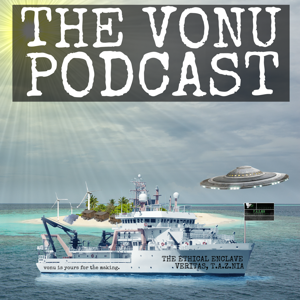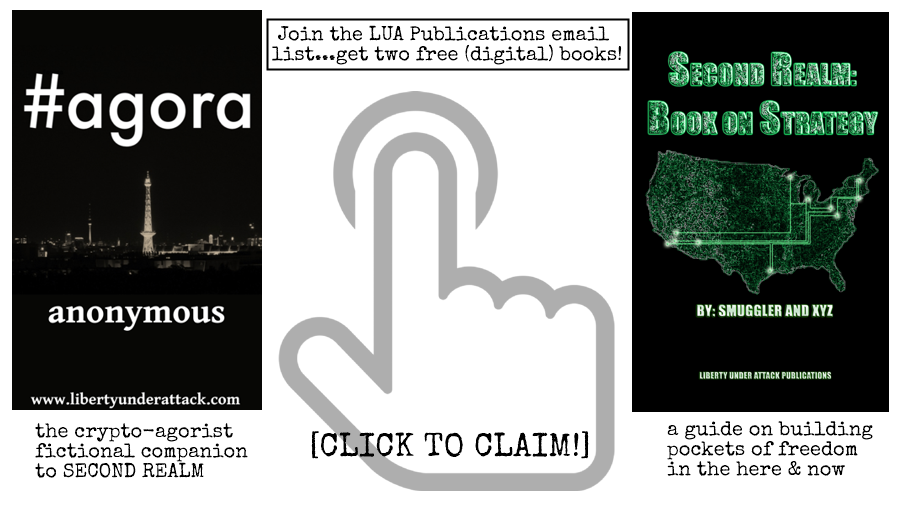Patriot Mythology: A Five Part Series
BELOW, IS A FIVE PART SERIES ON PATRIOT MYTHOLOGY, DONE BY GARY HUNT FROM THE OUTPOST OF FREEDOM AND KYLE REARDEN FROM THE LAST BASTILLE BLOG.
Patriot Mythology: Introduction, 1 of 5
Patriot mythology, simply defined, is the collection of unprovable or debunked assertions concerning the nature of our political relationship with the governments. Although a few of them originally began as simple misunderstandings that were eventually corrected, the majority of this stories appeal to the sensationalistic appetites of those who would prefer to financially profit from spreading such folklore rather than restoring constitutional government, or simply perpetuate the error, through lack of understanding. These will be addressed in this series of podcasts.
Referenced literature includes:
- Martial Law – Will They Declare It?
- Debunked: FEMA Coffins
- U.S. Postal Service Expands Construction of Secret Rooms
- Outpost of Freedom
Patriot Mythology: Corporate United States Myth, 2 of 5
Some patriots like to repeat the claim that the national government is a shadowy mega-corporation. They usually combine this with other assertions that their legal name, when all the letters are capitalized, is evidence of being treated as chattel property, or that the fringes on the U.S. flag is proof that we have been conquered by foreign merchants. Seldom do they provide actual evidence for these claims, not to mention the proof that directly contradicts their claims.
Referenced literature includes:
- Art. I § 8 of the United States Constitution
- District of Columbia Organic Act of 1871
- 28 USC § 3002(15)(A)
- 2008 Federal Style Manual
- United States of America v. Kevin Massey (criminal complaint)
- United States v. Washington, 947 F.Supp. 87 (1996)
- United States v. Frech, 149 F.3d 1192 (1998)
- United States Treasury Department’s Office of Inspector General’s Fraud Alerts
- Federal Bureau of Investigation’s Common Fraud Schemes
- 4 USC § 1 & 2
- Preamble to the United States Constitution
- Art. II § 1 cl. 8 of the United States Constitution
Patriot Mythology: Philadelphia Conspiracy, 3 of 5
A recurring accusation over time has been that the United States Constitution was conspiratorially debated behind closed doors and then foisted on the People. Examining the ratification period of the late 1780s tells quite a different story, one that reveals how the early American republic was formally established.
Referenced literature includes:
- Articles of Confederation
- The Anti-Federalist Papers
- We the People,” But Who Are We?
- No Treason VI: The Constitution of No Authority
- Whiskey Rebellion of 1791
- The Probability Broach (novel)
- Thomas Jefferson’s 1802 letter to the Danbury Baptist Association
Patriot Mythology: America is Still a British Colony? 4 of 5
A common assertion made over the years have included the notion that the victory of liberty won by the American War for Independence was a fraud, and that England still owns the colonies. Similar to this is the related set of claims which say that Britain, in turn, is owned and controlled by the Vatican. Despite the numerous sources allegedly proving these claims, the truth appears to be not only be much simpler, but also quite shocking.
Referenced literature includes:
- Respublica v. Sweers, 1 US 41 (1779)
- Articles of Association (1774)
- IRS Process Codes & Information, Publication #6209
- The Definitive Treaty of Peace Between Great Britain and the United States of America, Art. I & IV (1783)
- Padelford v, City of Savannah, 14 Ga. 438 (1854)
- Habeas Corpus: The Guardian of Liberty
- State Citizenship: Benefits of the Fourteenth Amendment & Escaping the Administrative Agency Trap
- A Primer on Habeas Corpus
- Elements of Ecclesiastical Law Vol. 1, Art. II, #106
- Romanus Pontifex (Papal Bull of 1455)
- Inter Caetera (Papal Bull of 1493)
- Contracts Payable in Gold – Senate Document #43
- Patriot Mythology – Corporate UNITED STATES Myth
Patriot Mythology: Conclusion and Summary, 5 of 5
After covering a swath of myths permeating the alternative media, it becomes pivotal to understand the popularity of these rumour mills, and who benefits from spreading such misinformation. The magnitude of the time wasted and effort spent debating on such topics is time and effort not spent on more productive tasks. Lack of rationality, coupled with ulterior motives, gives rise to a society of the spectacle where reality matters not, as well as the proliferation of confidence scams.
Referenced literature includes:
- Tampa Common Law Court Trial (1997)
- The Bundy Affair – Oathkeepers v. Militia, Part II
- Divide & Conquer
- Habeas Corpus: The Guardian of Liberty
- Soviet Subversion of the Free World Press (1984)
- United States v. Marsh, 98 C.D.O.S. (1998)
- Rushin and Rantin with Reactive Ralphie (2005)
- Maryland Resolves (1774)
- Factions: The Chains of Oppressions
- We live in a corporate United States?
- Gary Hunt Exposed! John Doe #4 at OKC
- Press & the Patriot Community
- Questionable Character – Christopher Nathaniel Blystone




I’m not going to claim that the Constitution was a secret plot, but it had no authority. Anything that does not include unanimous, individual consent had no binding power. End of story. Limited government is a hopeless cult, Constitutionalism is an 18th century ersatz religion. The same goes for the state legislatures. So I don’t see any point in debating whether the Constitution was a conspiracy, any more than FEMA camps. The US government never had and never will have any legitimacy, nor do any of its constituent states. America has always been an expansionist empire, and 1776 was a scam for an east coast mercantile oligarchy to replace British government with their own kleptocracy. The Constitution is toilet paper.
Cheimison,
I don’t disagree at all; I think you’re on the money. That said, I didn’t play any role in putting together this series–I’m simply hosting it for a couple of colleagues. Thanks for the comment!
-Shane
Do you have any subject matter on the patriot myth that every court case, civil or criminal, federal or state, is actually under the auspice of the UCC (Uniform Commercial Code)?